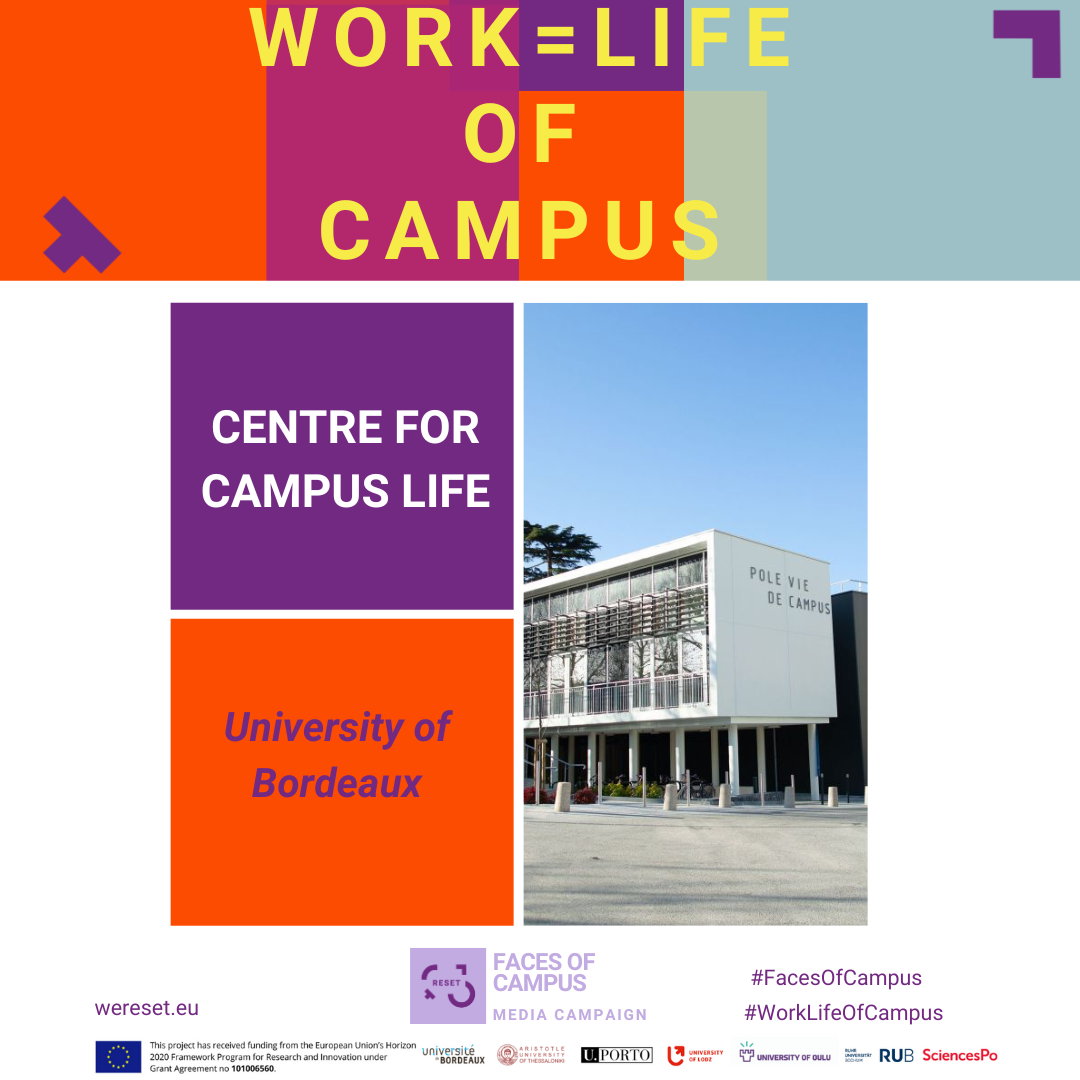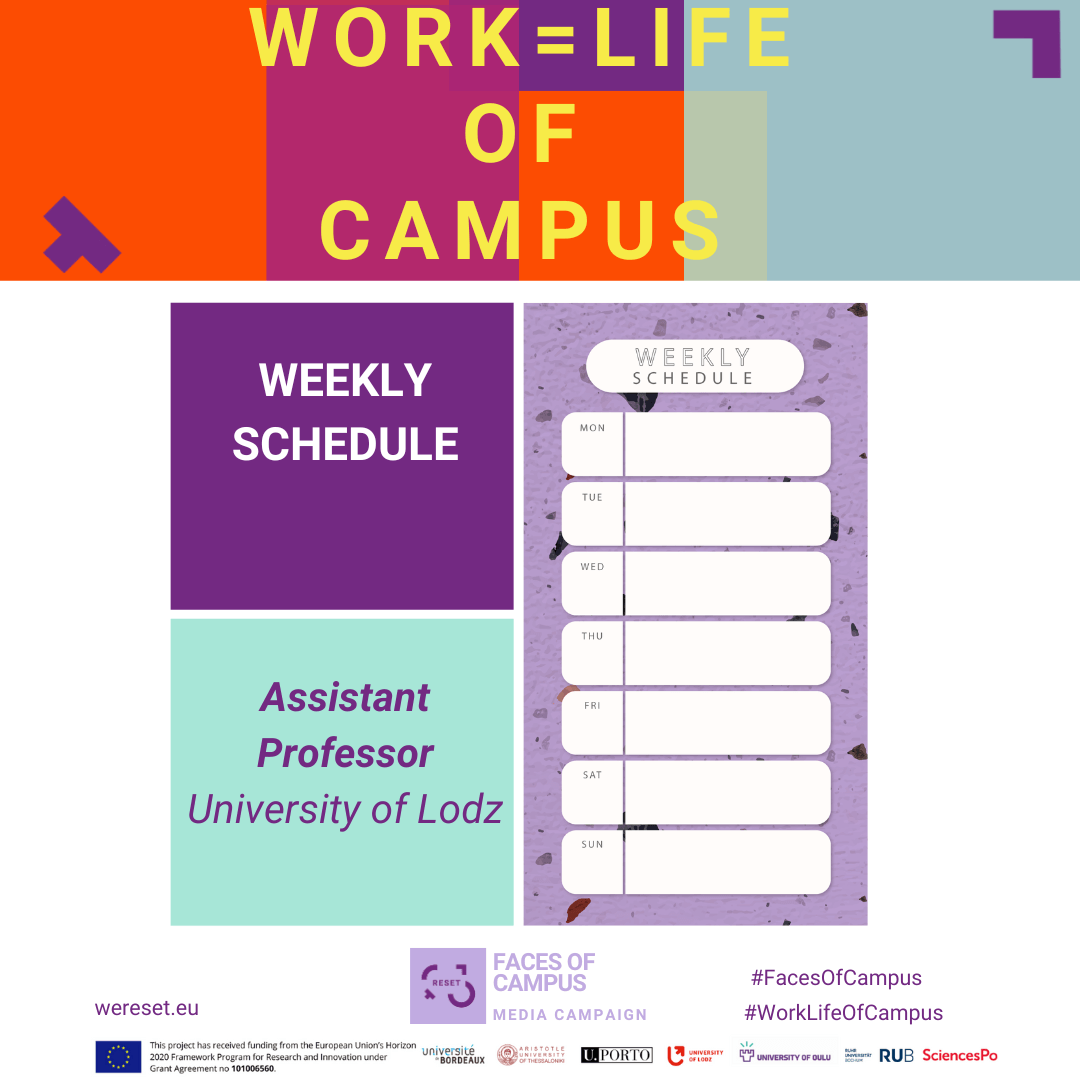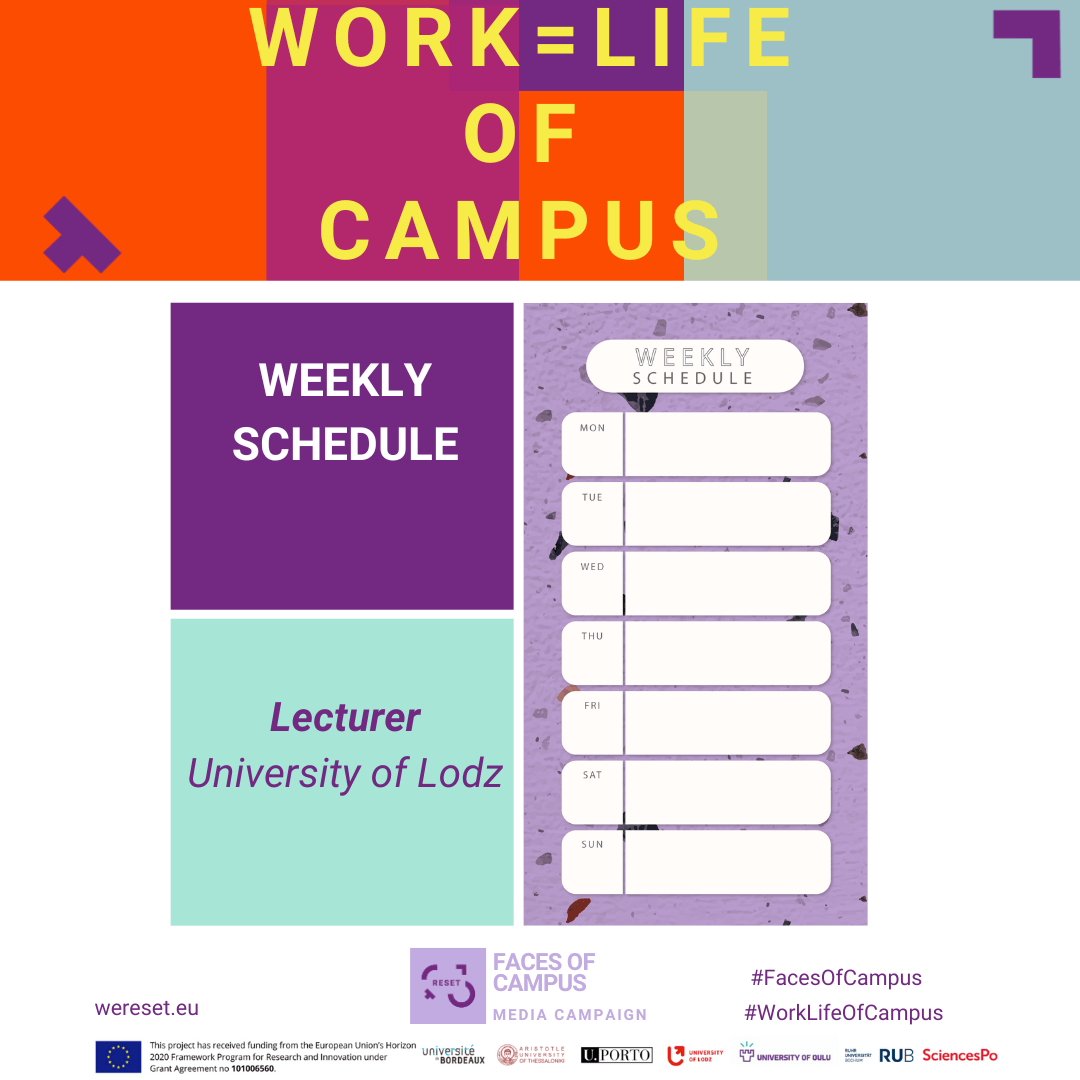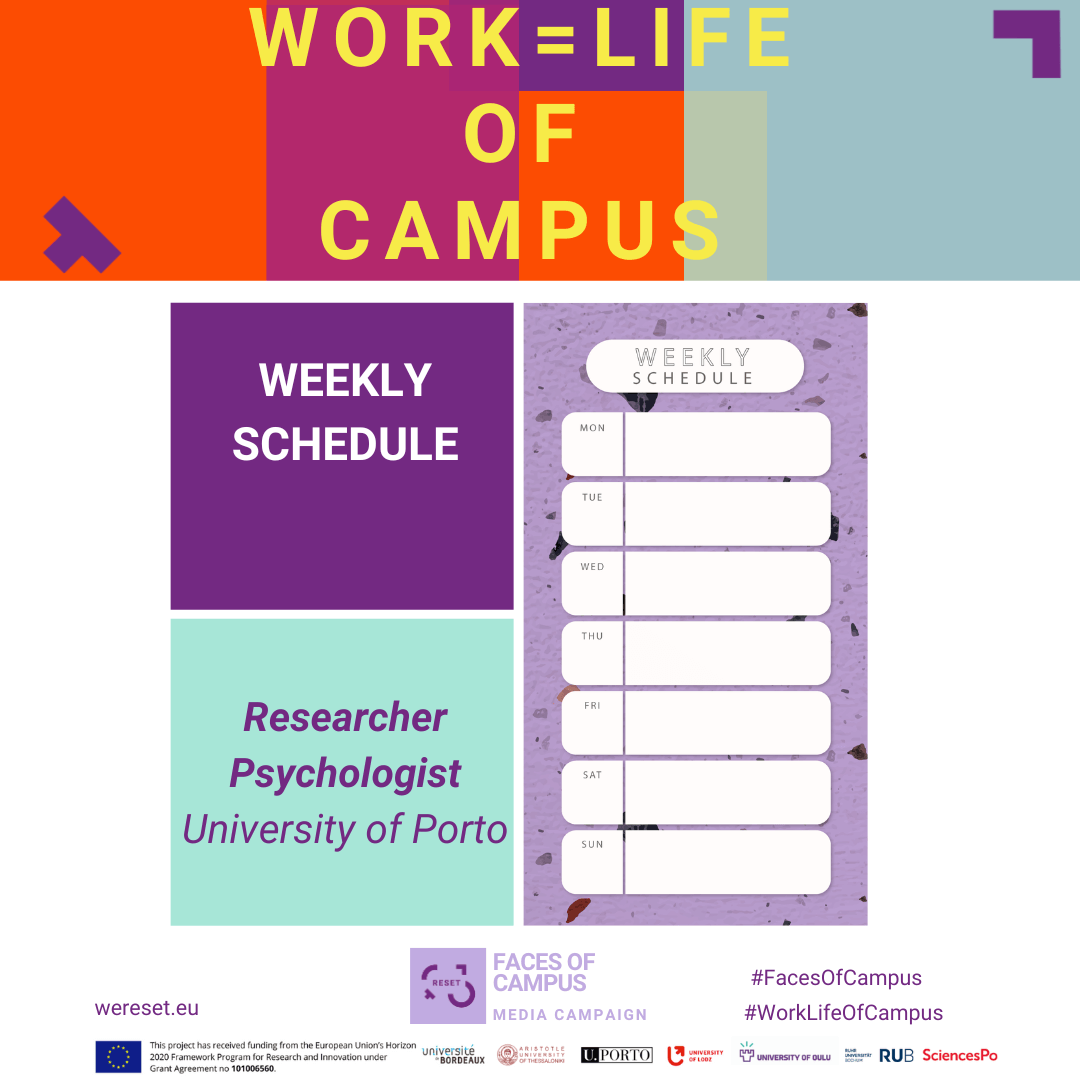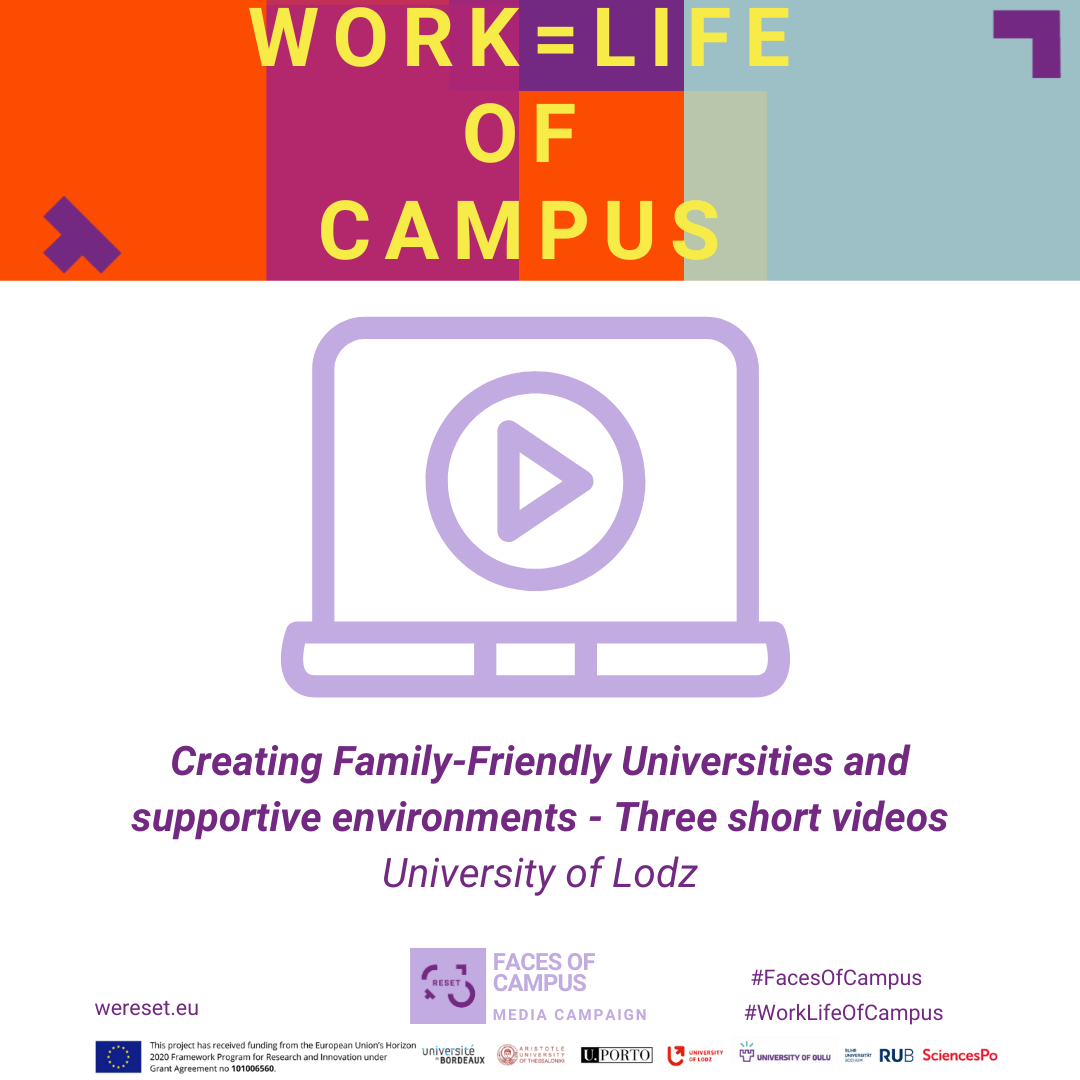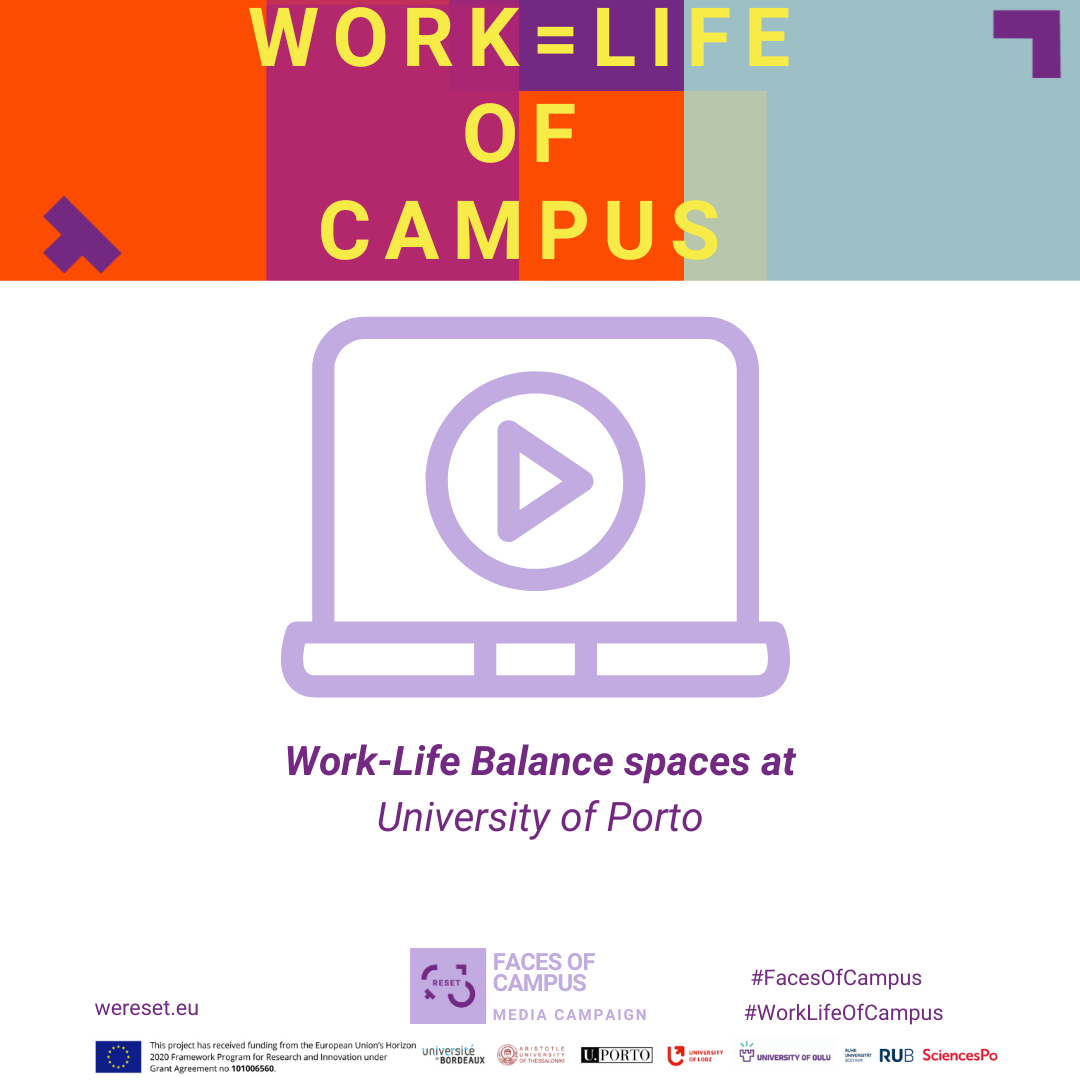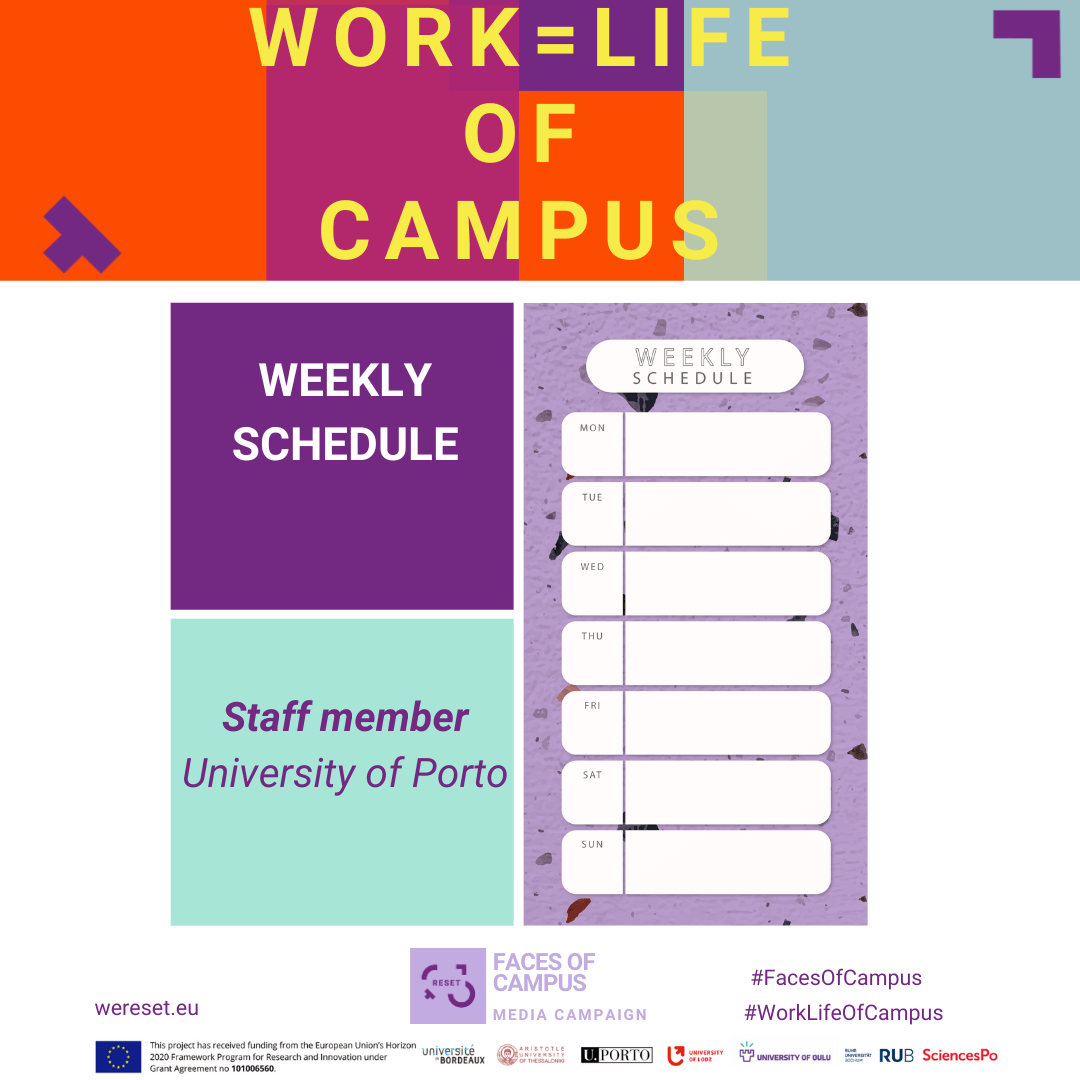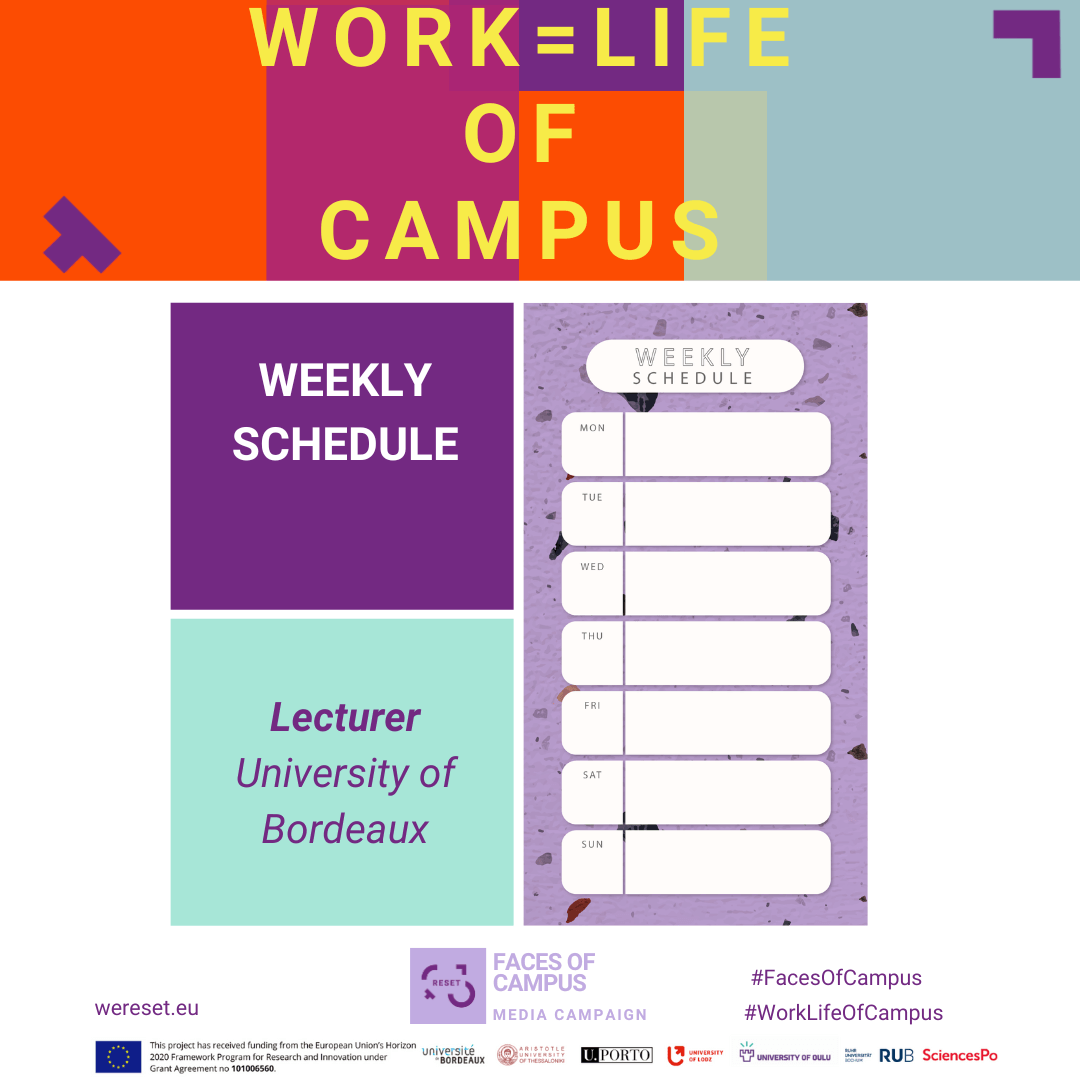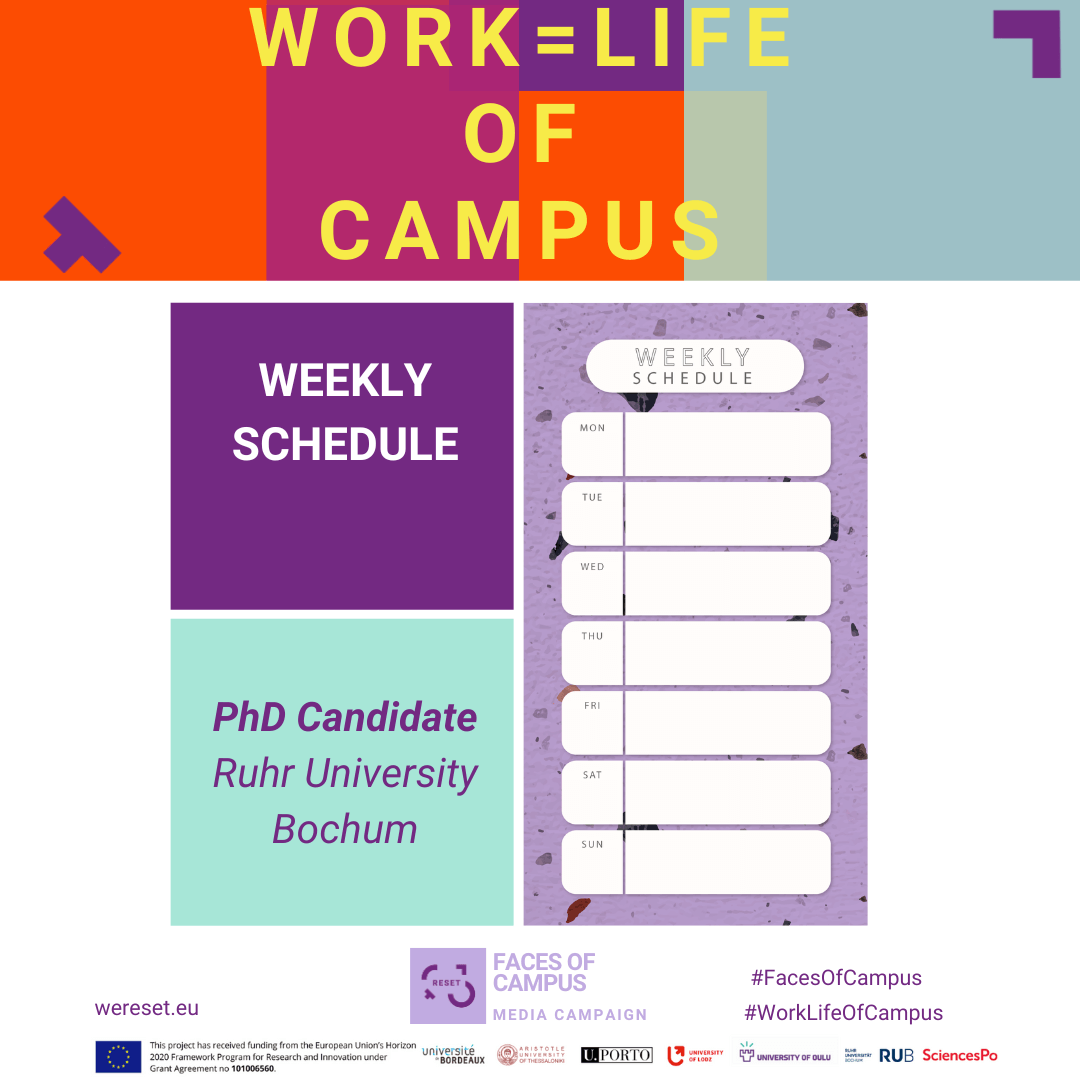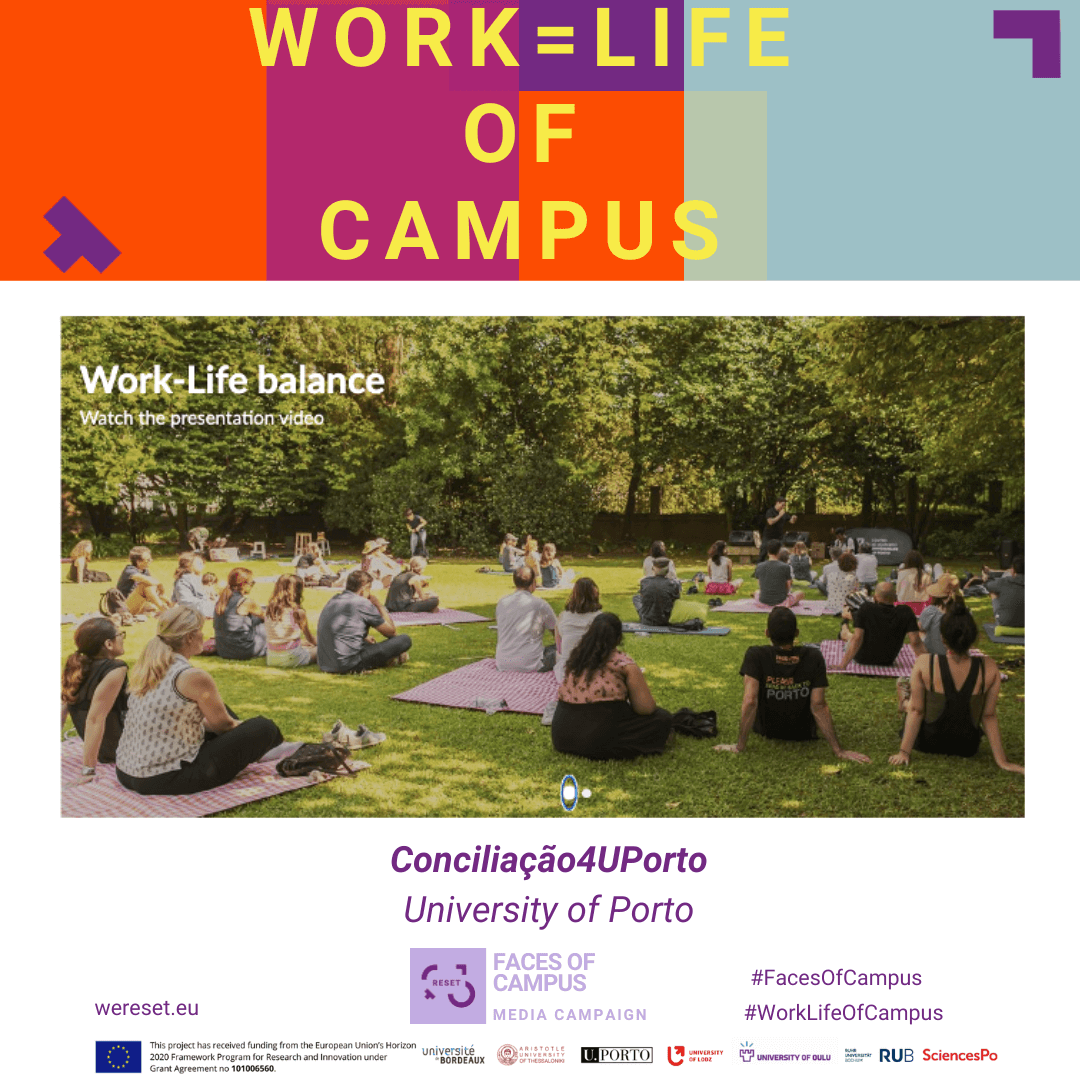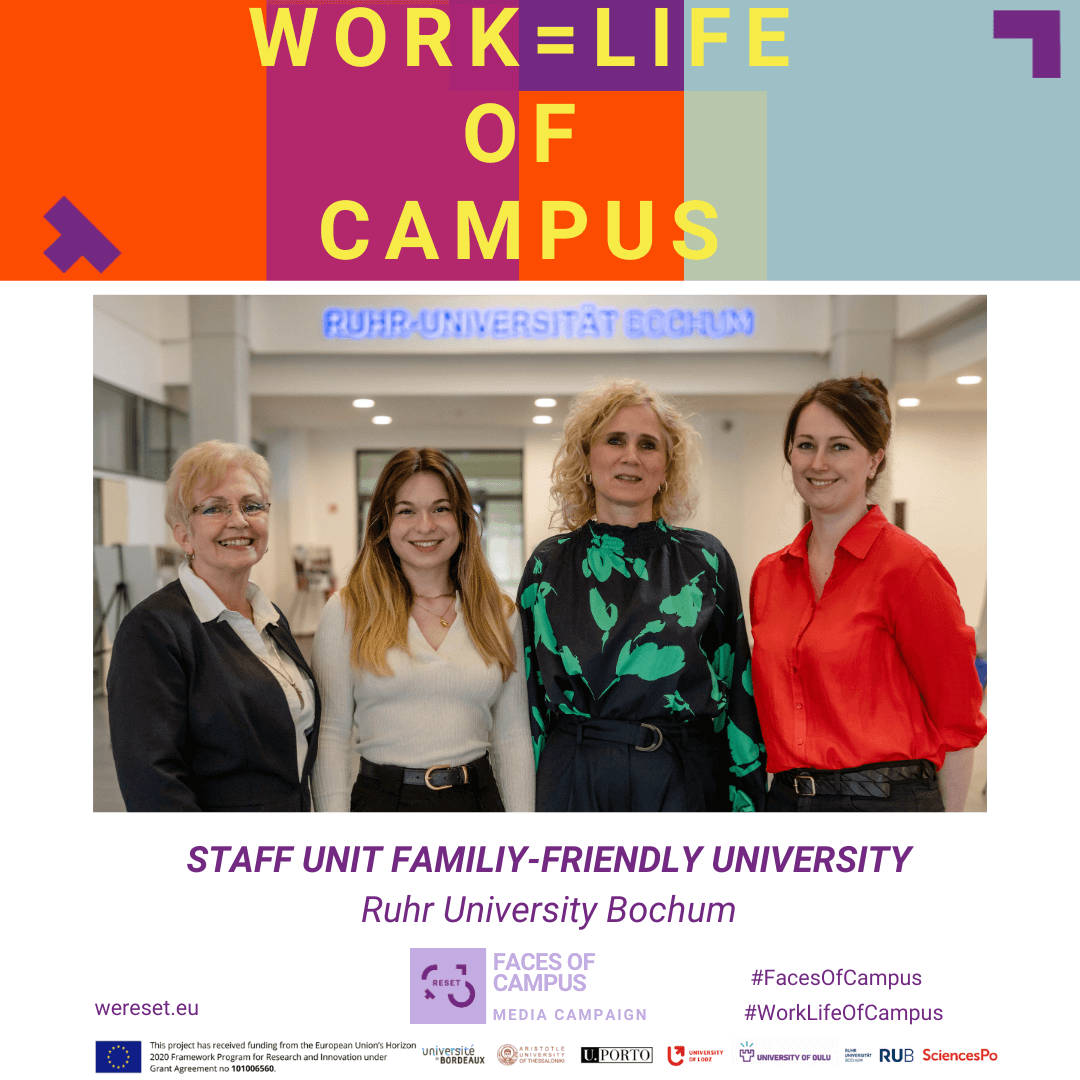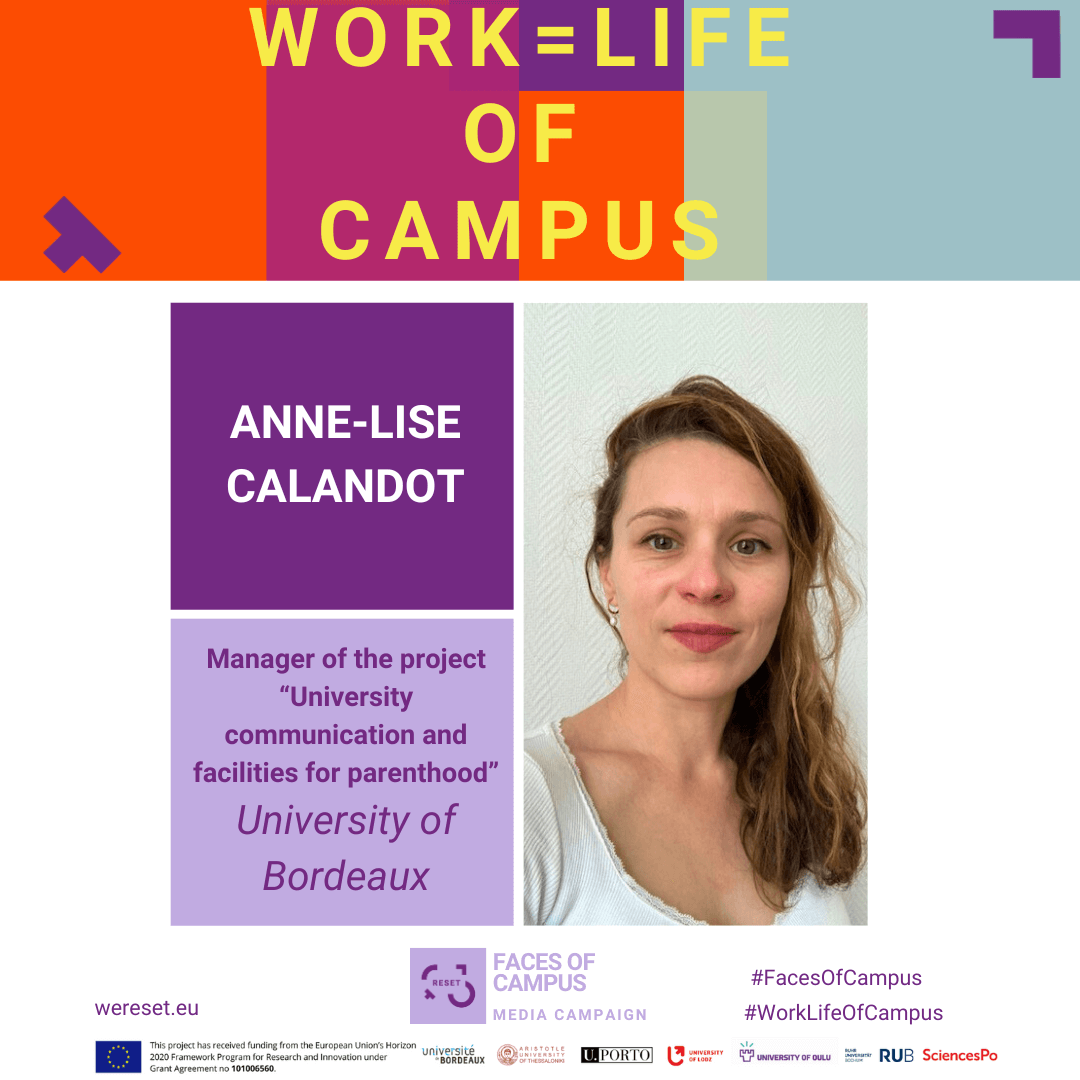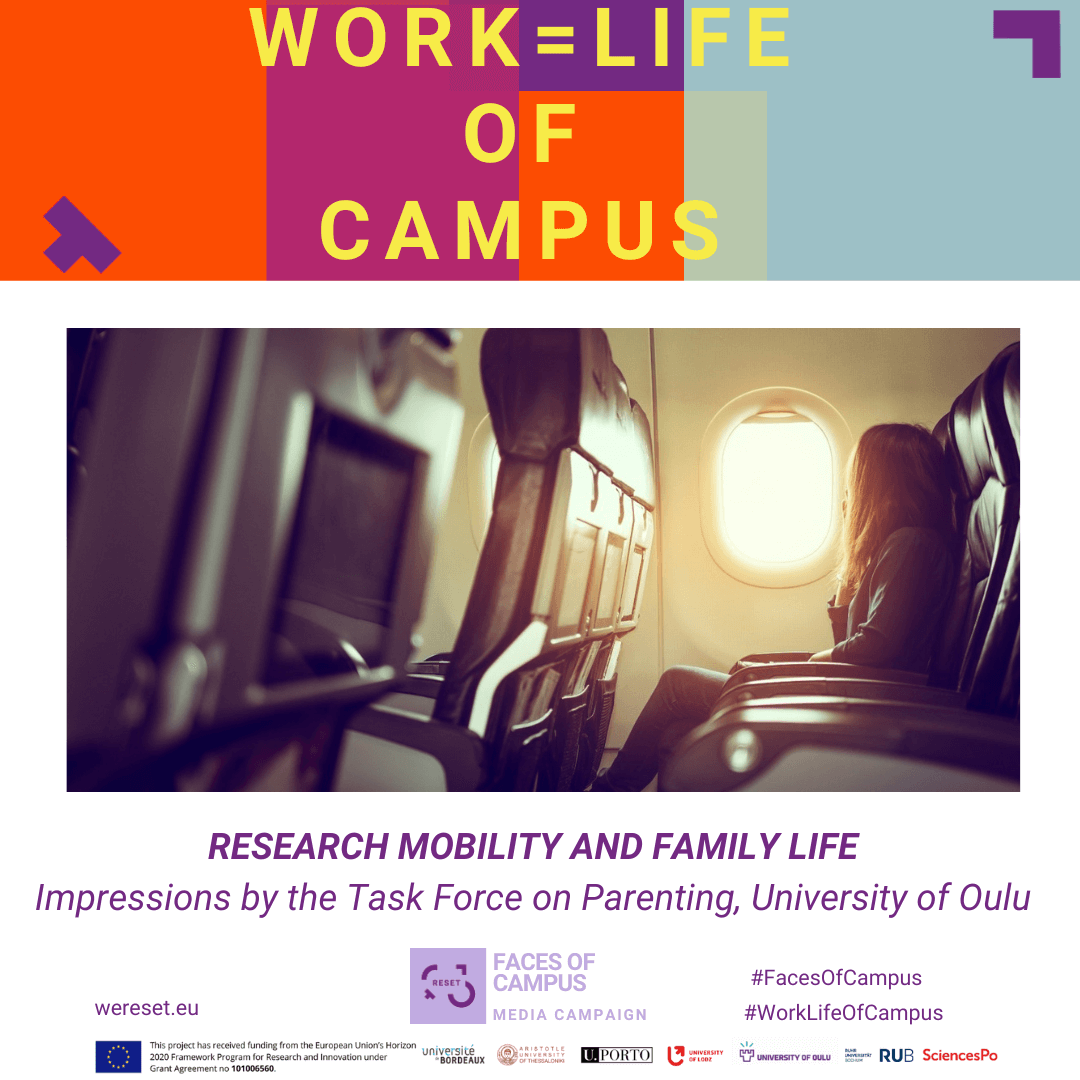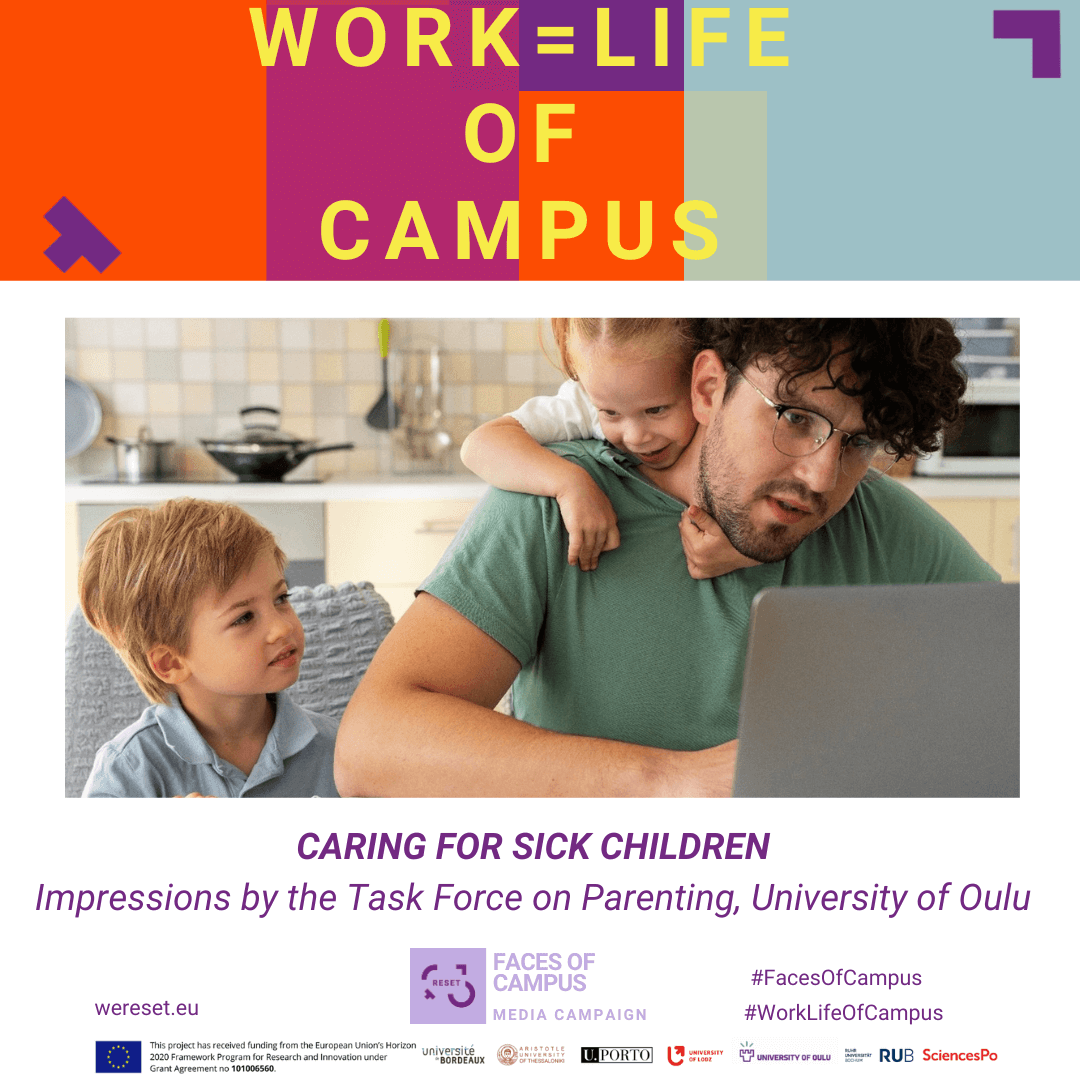

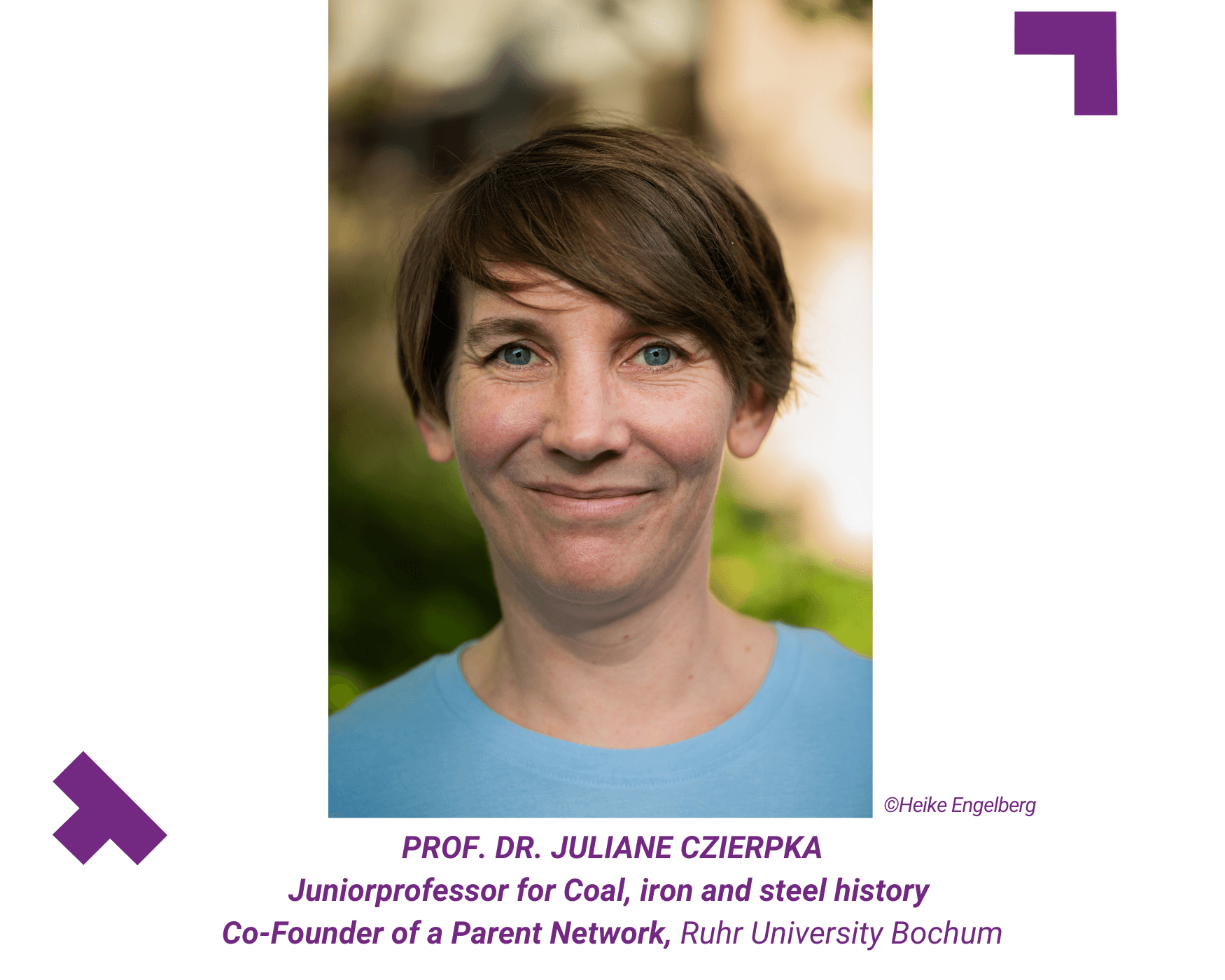
Through examples from initiatives at different RESET universities, WORK=LIFE OF CAMPUS present collaborative efforts to promote awareness for care responsibilities, and issues of gender equity and advocacy for more equitable care distribution and family-friendly practices at our institutions.
We talked with Juliane Czierpka, Junior professor for Coal, iron and steel history and co-founder of a Parent Network, Ruhr University Bochum.
About Juliane Czierpka
Juliane Czierpka studied for a Bachelor of Arts in Political Science and history at Ruhr-University Bochum (Germany) and for a Master of Philosophy in modern history at the University of Birmingham (UK). In 2013 she received her doctorate in history from Ruhr-University Bochum. After she completed her dissertation on regional industrialization in Europe, she became a research assistant in the Institute for Economic and Social History at Georg-August University Göttingen. In 2014 she was awarded a scholarship for a 6-month stay at German-Historical Institute in Washington, DC and went back to the Ruhr area in 2015 to work in a research project on the German mining industry after World War II at the German Mining Museum Bochum. In 2018 she was offered an assistant professorship at Ruhr-University Bochum. Juliane Czierpka has two children, born in April 2016 and October 2017. Her contract at Ruhr-University Bochum ends in 2025.
How does your initiative contribute to issues related to parenthood and work-life balance at the university?
The Eltern Netzwerk RUB (Parenting network RUB) was founded in the winter of 2020/2021 when childcare facilities had opened up again after total closure during the first months of the pandemic, but often reduced their opening times due to staff shortages and the kids were put in quarantine on a regular basis. We, as parents of toddlers and school kids, felt we just couldn’t keep up anymore and teamed up in order to give ourselves and all other persons with care responsibilities at Bochum’s Ruhr University a voice. Since then, the Eltern Netzwerk RUB has addressed issues for parents in academia within the university, making difficulties visible by communicating them to the rectorate and within various university bodies. Additionally, the Eltern Netzwerk RUB organizes meetings to provide a space for persons with care responsibilities to meet, chat and share information.
What issues, or problems is the parenting network particularly concerned with in this regard?
In universities work often stretches into the evenings and meetings. Research seminars, committees, staff meetings or other work-related appointments often take place in the evenings and conferences are regularly held during weekends. Furthermore, school and kindergarten holidays overlap with term times for several weeks per year. This makes it incredibly hard for parents to fulfill their duty as students, research assistants, professors or in other positions within a university, while taking care of their kids. Having to miss appointments due to a lack of childcare or because of sick children is often seen as a lack of dedication and can lead to conflicts with superiors or colleagues. The inability to take part in work activities on evenings and weekends can exclude persons with care responsibilities from formal and informal decision-making processes within the university. At the same time, the overlap between term times and school holidays makes it nearly impossible to have a family vacation. The Eltern Netzwerk RUB tries to better conditions for persons with care responsibilities by campaigning for term times that don’t overlap with school holidays and trying to give parents the chance to participate in university committees.
Are there people who turn to you in particular? Where is your expertise particularly in demand?
We are contacted by all group of university employees who experience difficulties to combine their jobs with their care responsibilities. As a rule of thumb, the lower the position within the university’s hierarchy, the higher the demand for advice.
As a help to the persons who contacted us, we can offer information on whom to contact within the university, give examples on best practice models we know from talking to other parents or from own experience and we often know what laws, rules or guidelines are applicable. Usually, problems arise when parents must reduce their working time for a short period, because their children are sick or because of a temporary lack of childcare. This often leads to conflicts or parents feel they are under a lot of pressure and don’t know how to cope or how to enforce their rights. Sometimes we just offer words of consolation because problems concerning the compatibility of job and family often can’t be solved within the existing system and working culture.
Which approaches or levers are particularly important from your perspective/ based on your experience?
One specific problem in academia is the decentralized structure of universities. Rectorates can issue guidelines or rules, but they are often ignored by professors on decentralized levels – as are laws on working times or maternity protection. This means that it is of utmost importance to ensure in some way that measures taken by the rectorate are implemented on decentral levels and to control that laws are followed.
As in German academia most researchers and even some of the technical and administrative staff are employed on limited contracts (at Bochum’s Ruhr University 83% of the research staff other than professors works on a limited contract), a lot of persons are highly dependent from their superiors – meaning professors and research group leaders. At the same time unhealthy work expectations prevail in large parts of academia.
Therefore, dependent employees can’t be expected to complain about their superiors. Universities have to ensure to put a control system in place that works without revealing that someone complained about violations of guidelines or laws.
From your perspective/based on your experience, what contributions can universities make to address these aspects?
Universities have to issue rules and guidelines to support their employees with care responsibilities and ensure that their workforce isn’t denied their right of a healthy work life balance. The rectorates also have to make it perfectly clear that the university honors these rules by addressing and communicating them on a regular basis and by acting accordingly. It would also be massively helpful if universities would make “respecting care responsibilities of employees and supporting them” or “taking measures to ensure employees have a healthy work life balance” a category within evaluation processes or salary negotiations. The current system, with its focus on publications and third-party funding, tends to punish those professors who honor their researchers work life balance and care responsibilities. Universities could set new incentives here to help their employees.
Furthermore, job ads for professors could ask not only for concepts on teaching and research but also for concepts on compatibility of work and family as some German universities already do. Rectorates could also ask faculties to comment on their scheduling policy after each term, forcing them to justify why committees had to take place in the evenings.
What would WLB look like in an ideal world for you?
In an ideal world, there would be no appointments outside day care times without consent, while no structural constraints force parents to give their consent against their will. The existence of children in researchers’ life’s is accepted. Everyone agrees that we, as a society, need kids and that parents should be supported in every possible way. Parent’s efforts to do their jobs while having kids are acknowledged and appreciated and their resilience and ability to organize themselves and their time are seen as a bonus rather than a hindrance for a career in academia.
In an ideal world, universities offer positions on permanent contracts to allow researchers to settle down before they reach their forties and to give them power to fight for their rights. The work load for positions in universities is measured and corresponds with each employee’s weekly working hours taking away the need to work long hours in order to get at least most of the work done.
Is there something else, you would like to refer to?
I would like to add that compatibility of work and family is not going to be reached in a system that is structured in the way German academia is. Decentralization gives a lot of power to a small number of people that can hardly be controlled, while limited contracts take away all the power from the Mittelbau (mid-level faculty). The lack of long-term jobs besides professorships forces researchers to work long hours in order to survive within a highly competitive system. This system is biased towards persons without care responsibilities, therefore reinforcing the glass ceiling for female researchers and punishing those who try to pursue a career in academia while taking on care. The selection of persons without care responsibilities, who did not honor their own work life balance in order to become professors, manifests the unhealthy working culture that can be seen in universities and makes academia a place that often lacks recognition of employees’ needs for a life besides their work.

